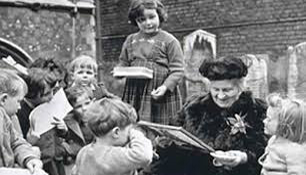
Maria Montessori’s life and work is the subject of books, articles and continuing research. She was a doctor, a professor, an activist, a mother, a teacher, a pioneer, a Nobel peace prize nominee – she was all these things and more.
From early in her life Maria Montessori was determined to improve life for her fellow human beings. She pursued her aspiration to become a doctor, overcoming all obstacles to enter medical school in 1886 – unheard of for a woman of her time. In 1889 she graduated, becoming Italy’s first female doctor. Among other posts held, Montessori was invited to lecture and speak publicly on social reform both nationally and internationally. After a number of years Montessori, focused her research on educational philosophy and anthropology. She wanted to study how the child learns and grows. This intense interest led her to giving up her prestigious position at the University of Rome and focus all her attention on the observation of children in what she called a prepared environment. The first Montessori school – called a Children’s House — opened its doors in 1907 to the poorest children of San Lorenzo, Rome. Montessori discovered that when children, regardless of socio-economic status, were placed in an environment that supported natural development, they had the power to educate themselves: The child was motivated from within, and had a natural curiosity and love for learning. ‘Help me to do it myself’ became the motto.
Today there are training centres on six continents and over 22,000 Montessori schools in 120 countries worldwide. Association Montessori Internationale act as custodians of Dr Montessori’s legacy and continues the work of this most remarkable woman.

